Current Affairs 02 October 2023
Today’s News
India’s statistical performance on the global stage
(Current Affairs 02 October 2023 | Relevant for GS paper-3)
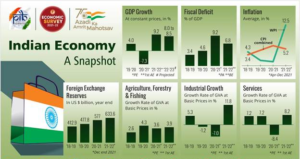
- The World Bank’s compilation of Statistical Performance Indicators (SPI) ranks India 67 among 174 countries in 2019. Analysis reveals both shortcomings and a commendable performance in various aspects of SPI.
- The importance of SPI evaluation to enhance international competitiveness has been highlighted in this article with recommendations for strategic improvements in critical pillars. There is also a need for more robust representation to the World Bank to refine SPI.
- As India celebrates its election to the United Nations Statistical Commission, India’s own official statistical system has come under scrutiny within the country recently. Questions have been raised about the credibility of the statistics it produces and the competence of the official statisticians.
- What is even more surprising is the assertion that the results of statistical exercises, such as censuses and surveys, are claimed to be of poorer quality when compared to data from administrative sources, most of which suffer from uncertain coverage and conceptual shortcomings.
- The World Bank compiles SPIs to assess the performance of national statistical systems across 174 countries. The SPI is based on the assessment of five dimensions of performance, commonly referred to as the “five pillars” of a national statistical system, i.e., data use; data services; data products; data sources, and data infrastructure.
- India’s Score 2019 (SPI Overall Score: 70.4; Pillar 1 Data use: 80.0; Pillar 2 Data Services: 88.0; Pillar 3 Data Products: 60.0; Pillar 4 Data Sources: 68.9; Pillar 5 Data Infrastructure: 55.0) and India’s Rank 2019 (SPI Overall Score: 67; Pillar 1 Data Use: 101; Pillar 2 Data Services: 35; Pillar 3 Data Products: 105; Pillar 4 Data sources: 31; Pillar 5 Data infrastructure: 73).
- The latest available scores are from 2019. According to these scores, India’s overall SPI score stands at 70.4, placing it in the 67th rank (ranks are self computed) among the 174 countries assessed.
- The pillar wise scores show India’s lower performance in the ‘Data use’ and ‘Data products’ pillars, with scores of 80 and 60, respectively, resulting in poor rankings of 101 (with an average rank of 116.5) and 105.
- The score in the ‘Data use’ category depends on how different sectors of society, including the legislature, executive, civil society, academia, and international bodies, utilize the statistics produced by the system.
- The SPI assessment 2019 considered only data usage by international bodies. India performs well in measures assessing the comparability of estimates of child mortality, debt reporting, drinking water, and labor force participation.
- This stems from a new comparability indicator introduced by the World Bank’s Povcal Net for poverty estimation. It is important to note that India did produce poverty estimates within this period through the NSS Consumption Expenditure Survey.
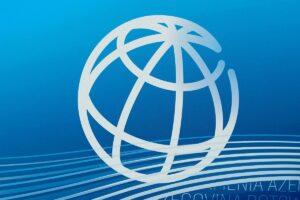
- The pillar ‘Data Products’ anchors the national statistical system’s performance around the essential data required for Sustainable Development Goals (SDGs). To improve upon this, India has already taken the right step by conducting a Multiple Indicator Survey and Comprehensive Annual Modular Survey in the NSS 78th round (202021) and 79th round (202223), respectively, for collection of data on SDGs.
- Regarding ‘Data infrastructure’, India’s score is 55, ranking 73 (with an average rank of 75.5). This pillar encompasses five sub dimensions: ‘Legislation and Governance’, ‘Standards and Methods’, ‘Skills’, ‘Partnership’, and ‘Finance’ (‘Skills’ and ‘Partnership’ were not considered for SPI 2019). India’s scores for ‘Legislation and Governance’ are high, given that the national statistical legislation aligns well with the Fundamental Principles of Official Statistics.
- In ‘Standards and Methods’, India fares well in indicators assessing the adoption of System of National Accounts (SNA) 2008, COICOP (Classification of Individual Consumption According to Purpose), and the latest standards for the compilation of government finance statistics, monetary, and financial statistics.
- However, the score in this dimension decreases due to the no adoption of the latest standards for classifying employment status (such as International Classification of Status in Employment or ICSE93 or North American Industry Classification System or NAICS 2012), the accounting basis for reporting central government financial data, and the no utilisation of the Generic Statistical Business Process Model (GSBPM).
- This is perplexing given that the process followed in NSS surveys closely mirrors and predates the adoption of the GSBPM.
- Under data sources, three indicators are evaluated (with the fourth indicator not considered in 2019): censuses and surveys, administrative data, and geospatial data. Among these indicators, censuses and surveys (score: 100/100 for censuses and 86.6/100 for surveys) contribute the most to India’s ranking, followed by administrative data (score: 50/100), and finally, geospatial data (score: 38.9/100).
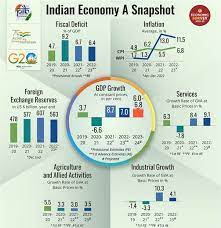
- The relatively low score of administrative data is mainly due to non fulfilment of criteria of at least 90% registration of births under the Civil Registration System (CRS). The World Bank has taken the estimate of coverage under CRS from the UN SDG monitoring database, which shows estimates of coverage as 89% for children under five and 87% for children under one .
- In the ‘Data services’ dimension, India gets full points for data releases and data services, yet avenues for improvement remain in terms of online accessibility.
- Clearly, the SPI for 2019, as compiled by the World Bank, underscores India’s superior performance in censuses and surveys in comparison to administrative data. A thorough examination of the SPI score is crucial to drive improvement and enhance international competitiveness.
Change in Maldives: India must engage with the new government in Male and deepen ties
(Current Affairs 02 October 2023 | Relevant for GS paper-2, International Relation)

- The Maldives has chosen a new leader, replacing President Ibu Solih, who won by a landslide in 2018, with Mohamed Muizzu, the Mayor of Male and the choice of the previous ruling party, the PPM. Mr. Muizzu won Saturday’s presidential runoff that followed an inconclusive first round in which no candidate crossed 50% of the vote, winning nearly 54% to Solih’s 46% in this round.
- Mr. Solih’s electoral loss is being attributed to a heavy anti incumbency sentiment and concerns over the post COVID19 economy that is dependent on tourism, the rift within Solih’s party, the MDP, due to a rupture in his old friendship with former President Mohamed Nasheed, as well as concerns over “sovereignty” issues, whipped up by Mr. Muizzu’s PPM that is behind an “India out” campaign to oust Indian military personnel.
- Prime Minister Narendra Modi was among the first to congratulate Presidentelect Muizzu on social media. New Delhi must avoid the impression that it has favorites within the Maldivian polity.
- The ball is now in Mr. Muizzu’s court to take up the promise of keeping India Maldives ties close — he has not himself criticised India in the way his party has. Among his tasks would be shoring up the Maldivian economy as debt repayments come due, and taking lessons from events in the neighborhood such as Sri Lanka’s handling of its economic crisis.
- It remains to be seen whether he will ensure the release of Mr. Yameen, and what control the previous President will have over the new government. Mr. Muizzu will have to preside over an upcoming referendum vote, which Mr. Nasheed has pushed for, to decide whether the Maldives will revert to a parliamentary system rather than the presidential one.
- It is important that neither Delhi nor Male view these interests through the prism of “zero sum” games, as that has led to tensions between them in the past.
Refresh Basics
India-maldives relationship
- India and Maldives share ethnic, linguistic, cultural, religious, and commercial links and enjoy close, cordial, and multi-dimensional relations. India was among the first to recognize the Maldives after its independence in 1965 and to establish diplomatic relations with the country.
- India established its mission in 1972 and resident High Commissioner in 1980. The Maldives opened a fully-fledged High Commission in New Delhi in November 2004, at that time one of its only four diplomatic missions worldwide.
- On international issues, Maldives had consistently supported India in multilateral for a, such as the UN, the Commonwealth, the NAM, and the SAARC.
- India’s relationship with the Maldives is free of any politically contentious issues. The one-time claim of Maldives to Minicoy Island was resolved by the Maritime Boundary Treaty of 1976 between the two countries, whereby the Maldives recognized Minicoy as an integral part of India.
- India was the first to assist the Maldives during the 2004 Tsunami as well as the water crisis in Malé in December 2014.
- Under Operation NEER, India immediately rushed bottled drinking water to Malé utilizing Air Force aircraft and Navy ships.
- India emerged as Maldives’ 3rd largest trade partner in 2021.
- Indian imports from the Maldives primarily comprise scrap metals.
- Indian exports to the Maldives include a variety of engineering and industrial products like drugs and pharmaceuticals, radar apparatus, rock boulders, aggregates, cement, and agricultural produce like rice, spices, fruits, vegetables, poultry products, etc.
- Since 1988, defense and security have been a major area of cooperation between India and the Maldives.
- India has adopted a very flexible and accommodating approach to meeting Maldivian requirements for defense training and equipment.
- India-Maldives defense cooperation also extends to the areas of Joint Exercises, Maritime Domain Awareness, gifting of hardware, infrastructure development, etc.
An ageing India needs age-responsive TB care
(Current Affairs 02 October 2023 |Relevant for GS paper-2)

- India is moving towards a future where the elderly will make up a significant proportion of society, primarily due to advances in health care and increased life expectancy.
- The elderly represent a storehouse of wisdom, and respect for their rights and freedoms benefits society. On International Day of Older Persons (October 1), we must resolve to invest in the health of our elderly population, and pay attention to their unique needs.
- This is especially true in the case of tuberculosis (TB), which affects over 25 lakh Indians every year, and kills at least 1,000 every day. India’s National TB Prevalence Survey, 2021, revealed that the prevalence of TB in people over the age of 55 was 588 (per one lakh population), much higher than the overall national prevalence of 316.
- These findings were the starting point for a first of its kind rapid assessment report on TB among the elderly, which we published earlier this year in collaboration with the National TB Elimination Programme and the U.S. Agency for International Development, highlighting TB’s impact on the elderly and the need for age specific TB guidelines.
- Interviews with older persons with TB revealed that their TB care journeys were fraught with challenges at every step, resulting in an overall suboptimal experience.
- Symptoms of TB including cough, fatigue and weight loss are mistaken as signs of other diseases or dismissed as signs of old age. The risk of having a TB diagnosis delayed or missed altogether is higher for the elderly compared to other adults.

- Once diagnosed, management of TB among the elderly is often complicated by multiple co morbidities, particularly diabetes.
- At a health system level, this can result in irregular treatment adherence and poor outcomes, including death. Some older people with TB spoke about their lowered ‘will to live’, especially in the absence of social and emotional support systems.
- Older people, and older women in particular, also face specific challenges in accessing health services. For instance, in rural and hilly areas, they struggle to travel to health facilities by themselves. Their access to reliable information on health is also limited — social networks inevitably shrink for the elderly.
- All of this is augmented by a loss of economic independence. Most people over the age of 60 are no longer working; they are living off savings or they are completely dependent on families.
- Data on TB related stigma among the elderly is sparse but we know that ageism is real and has been recognised by the World Health Organization as a cause of poor health and social isolation.
- Disease specific, vertical care programmes to holistic care models that reduce the need for the elderly to interact with multiple providers and facilities.
- Technical and operational protocols that provide clear guidance on diagnosing and treating TB in the elderly — for example, sample extraction protocols, comprehensive assessment of comorbidities and drug dosage adjustments — need to be developed..
- To address socioeconomic needs, we must design and roll out well considered support protocols, with inputs from elderly people with TB.
- At a macro level, we must ensure rigorous gender and age disaggregated collection and analysis of data, to identify TB trends across age groups, and to make sure that the elderly are included as a separate age category in all TB reports.
- Finally, we need a stronger research agenda focused on TB in the elderly, to better understand State specific trends in case finding and outcomes among elderly people with TB; substance use; drug resistance and co morbidity patterns across geographies; uptake of TB preventive therapy in the elderly; and inter sectionality with other aspects of equity such as gender, disability, class, and caste.
Refresh Basics
Tuberculosis
- TB is caused by a bacterium called Mycobacterium tuberculosis, belonging to the Mycobacteriaceae family consisting of about 200 members.
- Some of Mycobacterium cause diseases like TB and Leprosy in humans and others infect a wide range of animals.
- In humans, TB most commonly affects the lungs (pulmonary TB), but it can also affect other organs (extra-pulmonary TB).
- TB is a very ancient disease and has been documented to have existed in Egypt as early as 3000 BC.
- TB is a treatable and curable disease.
Transmission:
- TB is spread from person to person through the air. When people with lung TB cough, sneeze or spit, they propel the TB germs into the air.
Symptoms:
- Common symptoms of active lung TB are cough with sputum and blood at times, chest pains, weakness, weight loss, fever and night sweats.
Sarna Code
(Current Affairs 02 October 2023 | Relevant for Prelims)

- Recently, Jharkhand Chief Minister wrote a letter to Prime Minister, requesting the recognition of the Sarna religious code for tribals.
- Concerns have been raised regarding the neglect of Sarna Code, which could adversely affect tribal development policies under Fifth Schedule and Sixth Schedule of the Constitution.
- Sarna religion, followed by a significant tribal population in Jharkhand, is unique, based on nature worship, and distinct from mainstream religions.
- There is need to protect the cultural and religious identity of tribals who worship nature.
- Fifth Schedule lays out provisions for the Administration and Control of Scheduled Areas and STs in states other than 6th Schedule States.
- Sixth Schedule deals with the administration of the tribal areas in Assam, Meghalaya, Tripura and Mizoram.
Monoclonal Antibodies
(Current Affairs 02 October 2023 |Relevant for Prelims)

- In recent times, Monoclonal antibodies being considered for compassionate use in India amidst the Nipah virus outbreak in Kerala’s Kozhikode district.
- This option is being explored due to the absence of effective treatments for Nipah, a virus with a high mortality rate and also far more severe than Covid-19.
- The antibody binds to a part of the viral envelope, neutralizing the Nipah virus.
- The monoclonal antibody has also been used against the Hendra virus, a related virus from the same family.
- Antibodies are proteins produced naturally by the immune system that target a specific foreign object (antigen). They are called monoclonal Antibodies (mAbs) when they are produced by clones derived from a single parent cell.
- Monoclonal Antibodies are man-made proteins that act like a human antibody in the immune system. They are made by cloning a unique white blood cell.
Related Blogs…
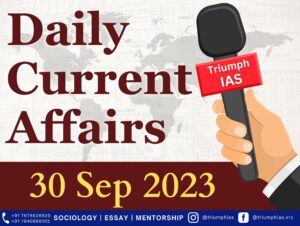 |
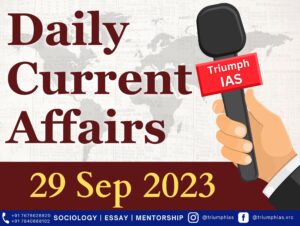 |
GS Related Practices Question…
To master these intricacies and fare well in the Sociology Optional Syllabus, aspiring sociologists might benefit from guidance by the Best Sociology Optional Teacher and participation in the Best Sociology Optional Coaching. These avenues provide comprehensive assistance, ensuring a solid understanding of sociology’s diverse methodologies and techniques.
META TAGS:
Current affairs 02 October 2023, Current affairs 30 September 2023,Today news, Today news GS, Today news upsc, Today news and views, Today news 2023, Today news Current affairs September 2023, Current affairs news, Current affairs book pdf, Current affairs best blog, Current affairs for UPSC, Current affairs 2023, Current affairs contact, Current affairs book, Current affairs program meaning

Choose The Best Sociology Optional Teacher for IAS Preparation?
At the beginning of the journey for Civil Services Examination preparation, many students face a pivotal decision – selecting their optional subject. Questions such as “which optional subject is the best?” and “which optional subject is the most scoring?” frequently come to mind. Choosing the right optional subject, like choosing the best sociology optional teacher, is a subjective yet vital step that requires a thoughtful decision based on facts. A misstep in this crucial decision can indeed prove disastrous.
Ever since the exam pattern was revamped in 2013, the UPSC has eliminated the need for a second optional subject. Now, candidates have to choose only one optional subject for the UPSC Mains, which has two papers of 250 marks each. One of the compelling choices for many has been the sociology optional. However, it’s strongly advised to decide on your optional subject for mains well ahead of time to get sufficient time to complete the syllabus. After all, most students score similarly in General Studies Papers; it’s the score in the optional subject & essay that contributes significantly to the final selection.
“A sound strategy does not rely solely on the popular
Opinion of toppers or famous YouTubers cum teachers.”
It requires understanding one’s ability, interest, and the relevance of the subject, not just for the exam but also for life in general. Hence, when selecting the best sociology teacher, one must consider the usefulness of sociology optional coaching in General Studies, Essay, and Personality Test.
The choice of the optional subject should be based on objective criteria, such as the nature, scope, and size of the syllabus, uniformity and stability in the question pattern, relevance of the syllabic content in daily life in society, and the availability of study material and guidance. For example, choosing the best sociology optional coaching can ensure access to top-quality study materials and experienced teachers. Always remember, the approach of the UPSC optional subject differs from your academic studies of subjects. Therefore, before settling for sociology optional, you need to analyze the syllabus, previous years’ pattern, subject requirements (be it ideal, visionary, numerical, conceptual theoretical), and your comfort level with the subject.
This decision marks a critical point in your UPSC – CSE journey, potentially determining your success in a career in IAS/Civil Services. Therefore, it’s crucial to choose wisely, whether it’s the optional subject or the best sociology optional teacher. Always base your decision on accurate facts, and never let your emotional biases guide your choices. After all, the search for the best sociology optional coaching is about finding the perfect fit for your unique academic needs and aspirations.
To master these intricacies and fare well in the Sociology Optional Syllabus, aspiring sociologists might benefit from guidance by the Best Sociology Optional Teacher and participation in the Best Sociology Optional Coaching. These avenues provide comprehensive assistance, ensuring a solid understanding of sociology’s diverse methodologies and techniques. Sociology, Social theory, Best Sociology Optional Teacher, Best Sociology Optional Coaching, Sociology Optional Syllabus.
Best Sociology Optional Teacher, Sociology Syllabus, Sociology Optional, Sociology Optional Coaching, Best Sociology Optional Coaching, Best Sociology Teacher, Sociology Course, Sociology Teacher, Sociology Foundation, Sociology Foundation Course, Sociology Optional UPSC, Sociology for IAS,
Follow us :



Find More Blogs
| Compare and contrast Karl Marx’s and Max weber’s | Karl Marx- Historical Materialism |
| Talcott Parsons : Social system | Scope of the subject and comparison with other social sciences |

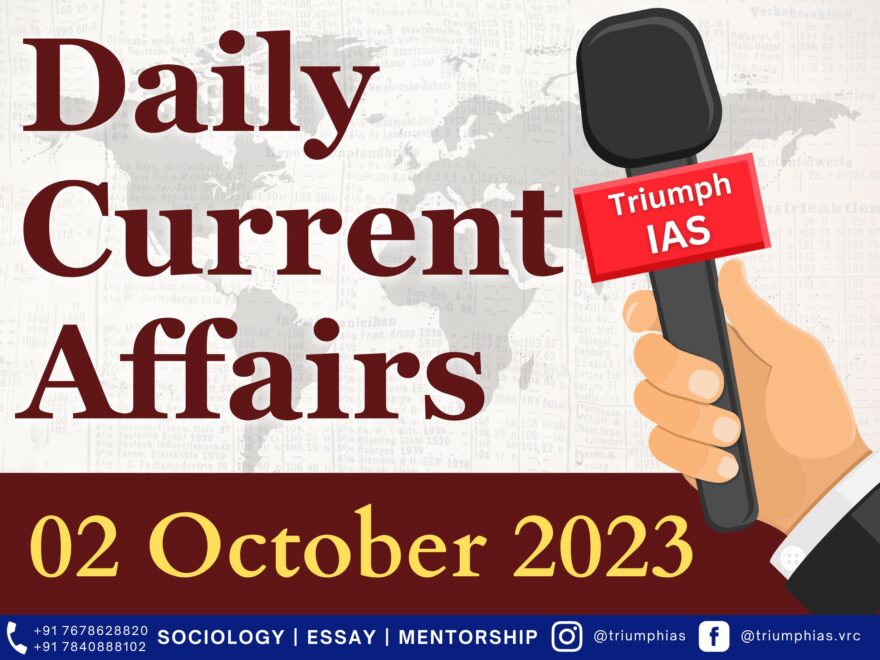


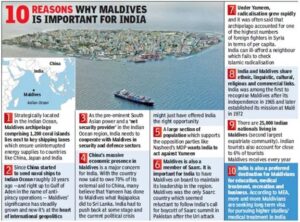
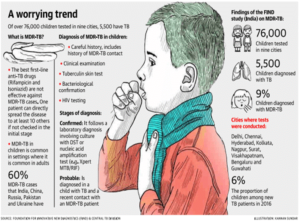
3 comments